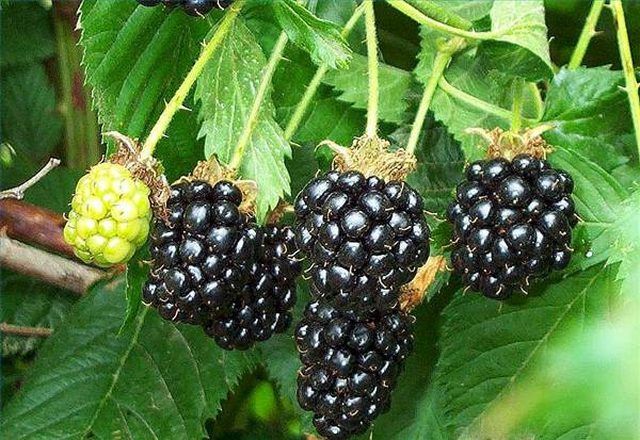Bulbs
Flower Basics
Flower Beds & Specialty Gardens
Flower Garden
Garden Furniture
Garden Gnomes
Garden Seeds
Garden Sheds
Garden Statues
Garden Tools & Supplies
Gardening Basics
Green & Organic
Groundcovers & Vines
Growing Annuals
Growing Basil
Growing Beans
Growing Berries
Growing Blueberries
Growing Cactus
Growing Corn
Growing Cotton
Growing Edibles
Growing Flowers
Growing Garlic
Growing Grapes
Growing Grass
Growing Herbs
Growing Jasmine
Growing Mint
Growing Mushrooms
Orchids
Growing Peanuts
Growing Perennials
Growing Plants
Growing Rosemary
Growing Roses
Growing Strawberries
Growing Sunflowers
Growing Thyme
Growing Tomatoes
Growing Tulips
Growing Vegetables
Herb Basics
Herb Garden
Indoor Growing
Landscaping Basics
Landscaping Patios
Landscaping Plants
Landscaping Shrubs
Landscaping Trees
Landscaping Walks & Pathways
Lawn Basics
Lawn Maintenance
Lawn Mowers
Lawn Ornaments
Lawn Planting
Lawn Tools
Outdoor Growing
Overall Landscape Planning
Pests, Weeds & Problems
Plant Basics
Rock Garden
Rose Garden
Shrubs
Soil
Specialty Gardens
Trees
Vegetable Garden
Yard Maintenance
How to Grow Blackberries Indoors
How to Grow Blackberries Indoors. Container gardens work well in apartments and in other indoor locations, but some are more difficult than others. Consider fruit trees. They're not impossible to establish without benefit of a yard, but they can be a challenge. While the amount of fruit you'll pick from a tree grown indoors will be less than from...

Container gardens work well in apartments and in other indoor locations, but some are more difficult than others. Consider fruit trees. They're not impossible to establish without benefit of a yard, but they can be a challenge. While the amount of fruit you'll pick from a tree grown indoors will be less than from an outdoor tree, if you follow the directions in this article and pay attention to your tree's care and feeding, you'll enjoy the fruits of your labor in a year.
Things You'll Need
Starter blackberry tree
Container with saucer
Fertilizer formulated for fruit trees
Potting soil
Pruning shears
Gravel and/or mesh (optional)
Rolling plant stand with casters (optional)
How to Grow Blackberries Indoors
Purchase a beginner blackberry plant from a reliable nursery or mail order firm. If asked to choose between "erect" and "trailing" strains, choose the erect plant because this tree is hardier and more ideally suited to a small growing space. Like it's name, this type of blackberry tree will be stiff and self-supporting. The ideal plant is an erect dwarf, biologically bred for small growing environments.
Find an appropriate container. Choose plastic, metal, wood, clay or ceramic, or consider a quirky container like an old wash tub or big barrel. Remember that the weight of your tree and its container will affect your ability to move it around, so you may wish to install a caster-fitted stand beneath the container's coaster for easy movement.
Prepare the container for the blackberry plant by drilling drainage holes if there are none. Experienced gardeners recommend covering the holes with mesh to keep soil from washing out after the tree is watered. Consider putting gravel at the bottom of the container to control the drainage, too.
Fill the container with commercial potting soil formulated for fruit trees. If you can't find it, combine one part each of sand, peat and vermiculite. Trim unhealthy roots before transferring the blackberry cane to the new container. Plant the blackberry tree about 5 inches deep then fill the pot, tamping down the soil firmly. Clip away any unhealthy foliage.
Give your blackberry tree every growing advantage by adding an all-purpose compost to the soil. Alternately, sprinkle the tree with bone meal and work it into the dirt surrounding the plant, but keep the bone meal away from the blackberry cane itself. Top with bark or another mulch to add a final layer of protection.
Place your blackberry tree where it gets maximum exposure to direct sunlight. Check for drafts as cold air ventilated from opening and closing doors and heating ducts can thwart the growth of your tree. Water your blackberry tree only as needed because the reason most plants in containers--indoors or out--languish is due to over watering. Don't water until the soil at the top of the container feels dry to the touch and make certain the water drains completely. Cut back on watering during the winter when all plant growth slows.
Follow fertilizer directions to the letter to avoid problems. Choose a product that's water-soluble and formulated for fruit trees. This type of mix will include nitrogen, phosphorus, potassium, magnesium, iron, manganese, zinc and copper in proper proportions. If your foliage is a nice shade of green, you're applying fertilizer in the correct amounts.
Expect to harvest blackberries during the second year. The fruit grows only on stems produced the year before, so every blackberry plant requires a year to mature before it bears fruit. When your first crop comes in, it should fall easily away from the branch and taste sweet. Prune away stems that have produced berries, leaving the others behind to produce fruit the following year.